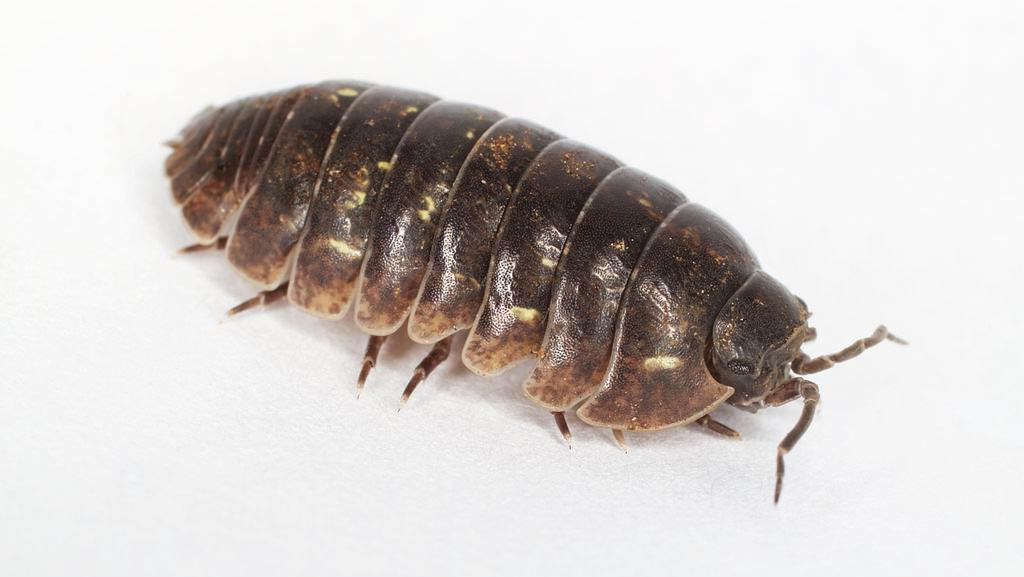From Worm Bin Mites to many Other Critters in the Worm Bin
Worm farms may seem like an inoffensive and peaceful environment, but underneath the surface, there is a complex world of organisms living together! From mites to microarthropods - bugs that are too small for us to see without magnification - these creatures help create fertile soil and promote healthy worms. They all have their own unique roles within the farm ecosystem; keeping it balanced so our wiggly friends can thrive.
Spring Tails in the worm bin are they good or bad?

Springtails are tiny and beneficial bugs that help to keep a worm farm healthy. They feed on the fungal matter found in composting bins, helping maintain an ideal balance between bacteria and fungi - something essential for good soil health! As bins age over time, springtail populations may increase accordingly; however they usually die off or leave once you harvest or store your castings.
Mites What do I do about them? How do I get rid of them?

When the perfect conditions of moisture and acidity arise, worm bin mites can become quite an unwanted nuisance in composting. However, there is no need to panic - with a quick bait trick you'll be able to rid your farm of these pesky critters! To remove the mites, simply place something appealing like a large slice of watermelon - they won't be able resist! Once overrun by them all that's left do is take out the bait and rinse it off before repeating as necessary. As this issue often arises from wet bedding or overfeeding - make sure you're regularly checking for any inappropriately moist/acidic conditions so you don't have another infestation on your hands further down the line!
What are these tiny white worms, are they baby worms?

Pot worms, also known as Enchytraeidae in scientific terms, are small white non-transparent creatures often found thriving in composting environments. They help to process food waste and create good soil for plants - but if their population gets too large it could indicate that the bedding is either overly moist or acidic from overfeeding/underbedding. To bring the pot worm populations back under control, dry out the environment by adding new bedding & controlling moisture better; plus add pH buffers like lime/dolomite/eggshells immediately!
Yikes, I have fruit flies what can I do?

Fruit flies can be an annoying presence in the home or garden, but there are ways to reduce and prevent their return. To start off with, try covering food with bedding material as well as dry newspaper strips - these act together to deter the pests! It might also help if you freeze foods that eggs may have laid on like bananas and pumpkin – make sure they’re frozen for at least three days before consumption to ensure any larvae inside is killed. Limiting how much feed worms get could also aid your efforts; break weekly feeds into smaller amounts fed every few days so fruit fly larva don't accumulate over time. If traditional methods fail then Bti Dunks provide a great alternative: it's parasitic against larvae although will take up two weeks of continuous application for maximum efficiency!
What to do about fungus gnats?

Fungus gnats, while not necessarily a problematic issue to have in your bin, can be annoying and hard to eliminate! If you are looking for an effective way of getting rid of them without having major impact on the environment or flora/fauna living there: try using Bti (or 'mosquito bits'), which is toxic only towards their larvae. Alternatively sticky traps may work; simply place some strategically around your bedding area. To further decrease the insect population - stop feeding worms for short period and let them finish off what's left before starting again from scratch. Even more creative solution would involve setting up a bowl with soapy water underneath small reading lamp that will attract adult fungus gnats at night when they look for places illuminated bright enough where they don't get eaten by any predators during this time frame..
How Can I Get Rid Of Cockroaches In My Worm Farm?

Get rid of pesky roaches quickly and safely with diatomaceous earth! This food-grade powder is made from the fossilized remains of aquatic organisms known as 'diatoms', creating a dry barrier that cuts up their shells when they come into contact. To play it safe, wear a face mask before dusting your worm farm's bedding for optimal protection against inhaling fine particles. For an easier alternative, place bait like peanut butter or honey in the middle of plastic table placemats/shallow dishes dusted with DE - watch them scurry to meet their misfortune! Speak caution though: assess if you really need to use this method since "DE" can be harmful toward beneficial bugs too.
How to get rid of slugs and snails.

Snails and slugs can be a nuisance in the garden, but luckily there are easy ways to get rid of them. One popular solution is using beer as bait; position it accessible for snails and slugs to crawl into either by placing an open (preferably flat) can on its side or pushing down a dish with some leftover beer inside into the soil. Then simply sit back--they'll drown after being drawn in! If you'd rather take more active measures then consider laying out corn meal: within hours they will gather around this tasty snack which you can collect up alive before feeding your chickens - problem solved!
How to get rid of Japanese Beetles /June Beetles?

Japanese Beetles and June Beetles are a common nuisance for many lawn owners, as their grubs can destroy roots of plants and wreak havoc on grassy surfaces. To help combat them without manually removing every larva, consider using Milky Spore - an OMRI Certified Organic product that helps provide long-term treatment! Alternatively, there's also parasitic nematodes which have proven effective in controlling the population. So why not give one or both of these treatments a try?
Rolly Pollies / Wood Lice

Rolly Pollies, also known as Wood Lice, are invaluable helpers in outdoor ecosystems! By shredding matter into smaller pieces for bacteria and worms to consume easily, they help stimulate the soil's life cycle. I once found an overpopulation of roly pollies was due to using large amounts of cardboard bedding - for some reason this really appealed to them – but when I switched it out with aged grass their numbers quickly declined. Thankfully these resilient bugs have another name that reflects one remarkable trait: they can roll up like a ball upon feeling threatened!
Are Black Soldier Fly Larvae OK In MY Farm? What Do I Do To Get Rid Of Them?

Black Soldier Fly Larvae (BSFL) can be a beneficial addition to your farm - they're excellent composters! However, too many of them may indicate you are over-feeding and it's time to reduce the amount. Additionally, an excess BSFL population generates heat that might not be ideal for other organisms living in the bin like worms which could end up competing with them for food if there is not enough supply. If this happens, removing some larvae by hand or killing any adults you find should help lower their presence while feeding less will give other residing species more resources available. And don't forget about those chickens who love snacking on these larvae as well!
Vermin Like Mice And Rats

Unwanted vermin such as mice and rats can be an ever-present problem, but with a little know-how you are sure to stay one step ahead. Worm farms provide the very food source that these critters crave; this makes them particularly vulnerable to attraction if you have added any grains or other tasty morsels! Vermin don't just like worms for dinner though - they may also find some of your bait worms too tempting not eat up to 50 in one night sometimes, leaving only half eaten tails behind! To humanely combat this issue there are poisons which won’t affect secondary animals who take ill from eating poisoned rodents. Alternatively traditional traps remain a popular method of quickly dealing with pesky unwelcome visitors – either way it pays off give yourself peace of mind.
What Do I Do About Ants In The Worm Farm

If you're noticing ants in your worm farm, it could be a sign that the bedding is too dry. To remedy this issue, try slightly increasing the moisture content and turning some of the bedding over to disturb them; usually they'll leave on their own accord! If not, there are further options such as diatomaceous earth – but use it only as an absolute last resort since this may also kill all beneficial insects around too. Additionally, if possible place cans or buckets of water under each leg of your bin-this can help stop potential future infestations from happening again!



1 comment
Damon
Black soldier flies make great bait.
Leave a comment
All comments are moderated before being published.
This site is protected by reCAPTCHA and the Google Privacy Policy and Terms of Service apply.